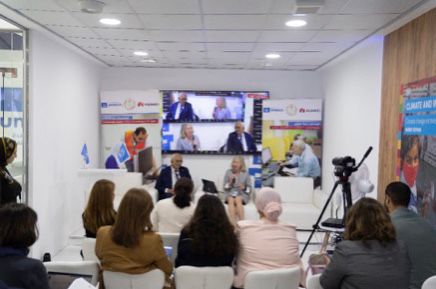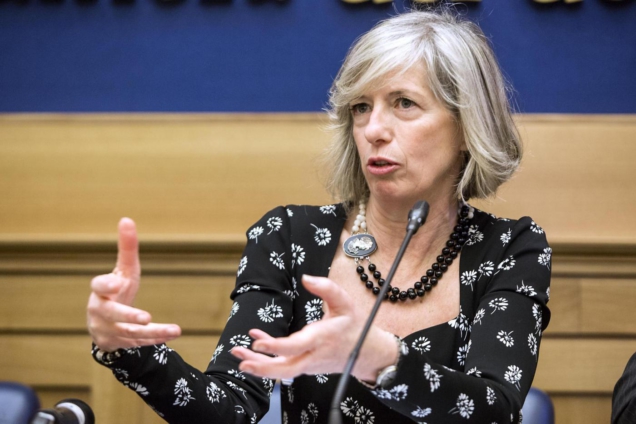UNESCO Assistant Director-General for Education Stefania Giannini has said digital technologies, geared toward inclusion and equity, could transform the future of school systems and learning.
“Harnessing technology and changing education models is imperative,” Giannini said as she addressed a side event about the UNESCO-Huawei “Technology-enabled Open Schools for All” project at the COP27 climate change conference in Egypt.
Giannini said the partnered project “can help countries to rethink and build a new generation of schools and learners”, as young people were increasingly faced with the challenges and risks caused by climate change.
The event, dedicated to a partnership developed by the UNESCO Education sector with Huawei and the Ministries of Education of Egypt, Ethiopia and Ghana, also presented preliminary results of the open schools in the three African countries.

“Aiming to leave no one behind in the digital world, enabling equity and quality in education is one of four focused domains in Huawei TECH4ALL digital inclusion initiative,” said Catherine Du, Head of Huawei's TECH4ALL program.
She added, “Moreover, we believe that ICT is a key enabler for a greener world with approaches like reducing carbon emission, renewable energy, circular economy and conserving nature with technology.”
Working with more than 20 different partners, TECH4ALL’s education program has helped connect schools, promote digital skills, and support STEAM curriculum to K12 students and teachers in more than 400 schools globally as well as unemployed young people and elders.
Since 2021, the Egyptian Ministry of Education and Technical Education, in cooperation with UNESCO and Huawei, have organized several meetings to prepare and review project documents.
“I would like to emphasize the critical need for collaborative efforts among all stakeholders to ensure not only equitable access to educational resources but also to fulfil social obligations towards students,” Dr Hegazy said.
In Egypt alone, the UNESCO-Huawei joint project aims to empower 950,000 teachers, principals, and supervisors to more effectively integrate ICT into their daily practice.
Ultimately, 23 million students at the basic education level in the country are expected to benefit from an enhanced and more equitable digital learning experience.
Huawei has operated in Africa for more than 20 years, helping connect more than one billion people in more than 50 African nations, as part of the company’s overarching commitment to help bridge the digital divide and enrich people’s lives.
Latest Stories
-
George Twum-Barimah-Adu pledges inclusive cabinet with Minority and Majority leaders
12 mins -
Labourer jailed 5 years for inflicting cutlass wounds on businessman
13 mins -
Parliament urged to fast-track passage of Road Traffic Amendment Bill
13 mins -
Mr Daniel Kofi Asante aka Electrician
14 mins -
Minerals Commission, Solidaridad unveils forum to tackle child labour in mining sector
19 mins -
Election 2024: Engagement with security services productive – NDC
20 mins -
‘Let’s work together to improve sanitation, promote health outcome’ – Sector Minister urges
22 mins -
Ellembelle MP cuts sod for six-unit classroom block at Nkroful Agric SHS
25 mins -
‘I’ll beat the hell out of you if you misbehave on December 7’ – Achiase Commanding Officer
27 mins -
AFPNC leads the charge on World Prematurity Day 2024
33 mins -
Court remands unemployed man over theft of ECG property
39 mins -
Election security rests solely with the police – Central Regional Police Command
41 mins -
NCCE engages political youth activists at Kumbungu on tolerance
42 mins -
‘In Mahama’s era students lacked chalk, but are now receiving tablets’ – Bawumia
51 mins -
Project commissioning not a ploy to attract votes – Oppong Nkrumah
53 mins

